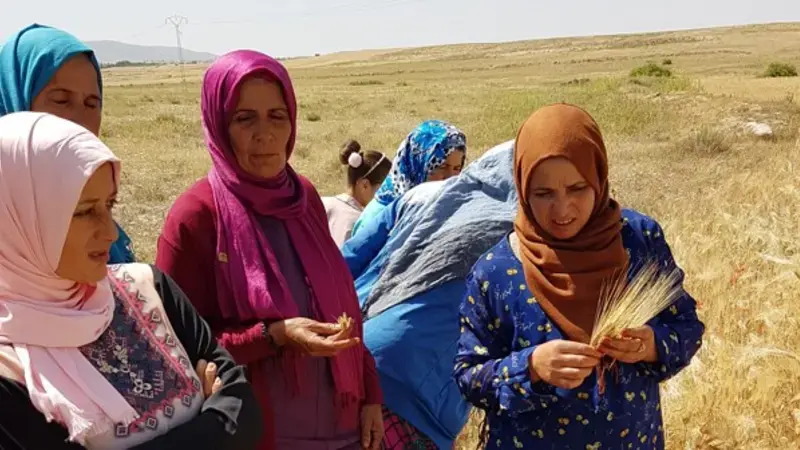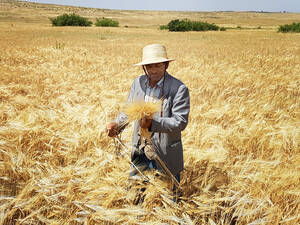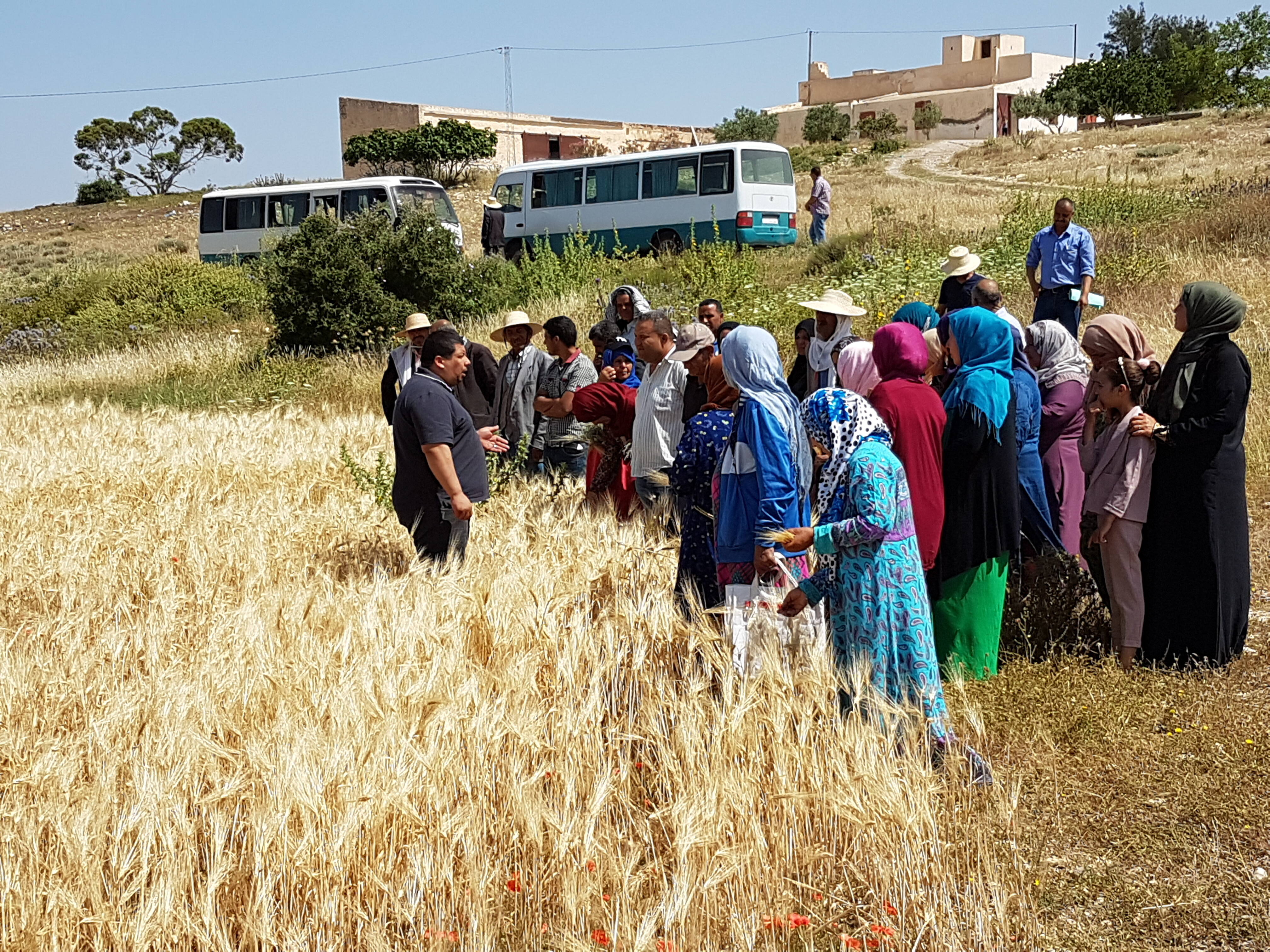Women Farmers are Key to Driving Technology Adoption

ICARDA is grateful to the German Federal Ministry for Economic Cooperation and Development, and to the CGIAR Research Program on Livestock (Livestock CRP) for funding this research. ICARDA would also like to recognize its partners the Institution de la Recherche et de l'Enseignement Supérieur Agricoles (IRESA), the Institut National de la Recherche Agronomique (INRA) de Tunisie, the Agence de la Vulgarisation et de la Formation Agricoles (AVFA), the Office de l’Elevage et des Pâturages (OEP), and the University of Goettingen in Germany.
------------------------------
Enrolling women farmers in specifically designed training significantly increases the overall adoption of agricultural innovations, ICARDA scientists have demonstrated in a recent paper published in Experimental Agriculture.
Out of the four agricultural extension approaches tested, the two that resulted in the highest levels of technology adoption by small farmers in Tunisia featured a female empowerment module.
The scientists designed this experiment to collect evidence on how to reduce the gap in Tunisia regarding access to technology and innovation between small and wealthier landholders, with an additional focus on women farmers - typically in charge of livestock rearing and health.
For this study, the scientists used a Randomized Control Trial (RCT) approach, which measures the impact of an intervention on a particular outcome by conducting a carefully controlled experiment that compares the effect on at least two groups – one of which has received the intervention, and a control group which hasn't.
The RCT method was popularized among development practitioners – and ICARDA's research staff – since it earned economists Esther Duflo, Abhijit Banerjee, and Michael Kremer the Nobel prize in 2019. "RCT is a scientific, evidence-based impact assessment tool with quasi-immediate policy implications," explained Dr. Boubaker Dhehibi.
The team of scientists studied the adoption rates of Kounouz, a drought-resistant barley variety well adapted to dry conditions.

“Kounouz is a cross between ICARDA genetic material and a local Tunisian barley variety, capable of flourishing in dry environments and producing good biomass for grazing," said Udo Ruediger, study co-author and agricultural innovation specialist at ICARDA explained.
“Because animal feed is a high-cost expenditure for smallholder farmers, better climate-adapted varieties can make a significant impact on livelihood resilience," he added.
To discover how different dissemination strategies would influence the adoption of Kounouz barley by small farmers, the scientists designed a RCT framework in which 700 households from 70 different villages across the arid and semi-arid Governorates of Zaghouan and Kairouan (in central Tunisia) were randomly assigned to one of four treatment study groups - and a control group.
“We were especially interested in studying the impact that female farmer training would have on technology adoption since women are often not included in extension and capacity-building programs,” Dr. Dhehibi pointed out.
The first treatment group received a technical training on Kounouz; the second group also received the Kounouz technical training, in addition to an economic and organizational training; the third group received the same training as group number two, plus a female empowerment module; while the last group was offered the technical training, as well as the female empowerment one.
"Based on this randomized controlled trial (RCT), treatments number three and four had the highest impact on technology adoption out of the four capacity-building combinations we tested," said Dr. Dhehibi.

Lasting a total of eight days, the training designed for women farmers consisted of classes in self-esteem, business development modules, as well as financial and organizational training.
"Our results show that involving women and offering a female empowerment component to any dissemination strategy is the best way to enhance technology adoption," Dr. Dhehibi explained.
The study's results add to the growing evidence that agricultural development is swifter when women’s key roles in agriculture are better acknowledged. "Our findings have good policy applications for equitable and more comprehensive adoption of new technologies," said Dr. Dhehibi.
It has less to do with an overhaul of the research system in its current form, he explained, and everything to do with including women in scale-up, driven by improving their access to gender-sensitive extension programs.
"Women are on the frontline of livestock management systems. Real agricultural development won't occur without them," Dr. Dhehibi concluded.
